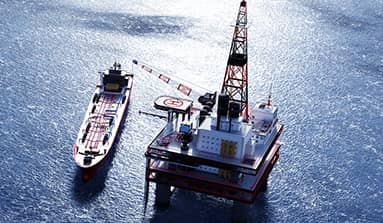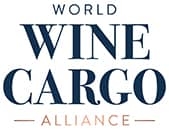SULFUR EMISSIONS REGULATIONS:
DOES IT IMPACT ON YOUR BUSINESS?
It is important for any business to know the environmental impact of their operations. At KC Group Shipping our environmental approach is one that mirrors our supply chain solutions for our clients and for us, it is critical that we keep them abreast of all developments, locally and globally. Recently news has been issued that ocean vessels will face stricter sulfur emissions regulations, as of January 1st, 2015.
So what does it really mean for your organisation and how should you address?
THE CHANGES
With an approach to protect the environment and address reduction of global pollution, the International Maritime Organization, (IMO), has regulations in place to control particulate matter emanations. These include sulfur emissions.
Sulfur is a natural element of the crude oil that ships use as fuel and is a primary cause of air-polluting particles emitted by ships, that can cause environmental impact. The new sulfur level regulations are intended to reduce the amount of air pollution generated by the shipping industry to improve air quality. Something that KC Group Shipping are aware of and continually monitoring for our clients.
There are two standards that KC Group Shipping, along with all carriers must follow, as and when these regulations kick in.
These include the following:
- Emissions inside an emission control area (ECA)
- Emissions outside of an ECA.
Since 2010, the approved limit of sulfur emissions inside an ECA was 1.00% m/m by weight.
As of January 2015 these limits are to be reduced to 0.10% m/m. [1]
As many vessels and consignments operate both in and out of these ECAs, it has been common practice for them to operate on different fuel oils for the areas in which they operate and travel within. To maintain compliance, carriers will now need to use a different type of fuel inside ECAs, one that is not as readily available as previously.
THE IMPACT
There are concerns that the world’s refineries cannot produce enough of the maritime marine fuel that meets with these new sulfur emissions regulations. An approach to address this in a proactive fashion and one that is sustainable, to offer surety of supply, is at the forefront of discussions with suppliers the world over at this time.
When the regulation goes into effect, it’s thought that many carriers will pass the cost difference to shippers. So what does this impact mean to container costs? Initial estimates indicate that they may rise by $20-30 per TEU in transpacific lanes and $40-50 per TEU in transatlantic lanes.
A significant price surge to overcome in today’s competitive marketplace, let alone for companies that may not have budgeted for increases like these, that could result in impact to bottom line revenue and profits.
THE RESULTS
As this date for these regulations nears, it is critical to keep updated on any additions and changes to these regulations, as well as making sure that your business has addressed the impact for your organisation, additionally discussing with your carrier just how they will find solutions to this legislation and ensure all your supply chain is legislative and cost effective.
At KC Group Shipping we are offering all current and prospective clients an audit and consultancy to address these regulations.
Knowledge is critical within these developments and our specialists are on hand to guide you to make the right, and legislative, decisions for your organisation.
You can speak to one of our team direct by calling +44 (0)141 420 1700 or alternatively email your details to enquiries@kcshipping.co.uk and one of our advisers will be in touch.
We will bring you any further news and developments on this as they occur.
KC Group Shipping….. Moving Your World












